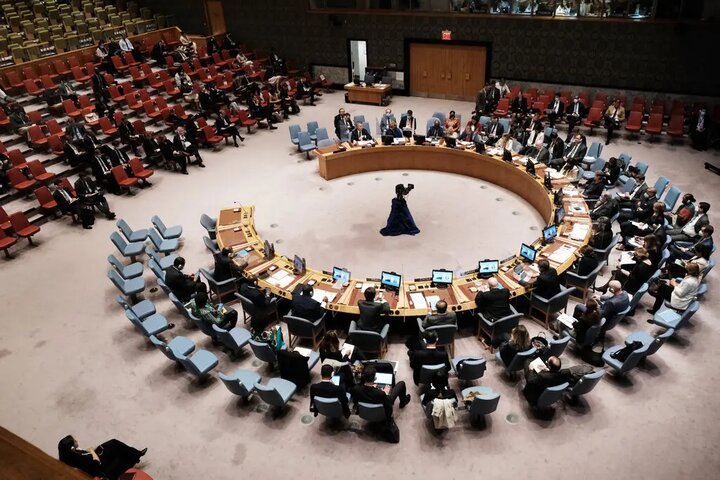RASC News Agency: The United Nations has issued a scathing condemnation of the Taliban’s so-called “Ministry for the Promotion of Virtue and Prevention of Vice,” declaring its foundational law a direct threat to basic human rights and a flagrant violation of Afghanistan’s international obligations. In a new report released Thursday, April 10 (21 Hamal), the United Nations Assistance Mission in Afghanistan (UNAMA) disclosed that the UN Security Council has formally demanded the immediate and unconditional repeal of the Taliban’s draconian decree.
The report reviews the enforcement of the law between August 21, 2024, and March 31, 2025, and reveals the far-reaching consequences of the Taliban’s growing authoritarianism. According to UNAMA, the UN Security Council’s Resolution 2777 adopted on March 17, 2025 expresses deep alarm at the institutionalization of the Taliban’s morality police and calls for an end to the systemic repression being carried out under the guise of religious enforcement. UNAMA’s analysis paints a grim picture: under the current regime, Afghanistan is not only hurtling backward socially and politically but is also losing what little remains of its engagement with the international community. The Taliban’s “virtue and vice” law has empowered unelected clerics and extremist enforcers to impose arbitrary restrictions on virtually every aspect of civilian life most notably targeting women, ethnic minorities, and independent thinkers.
The report underscores that the establishment of formal institutions to implement this law, including patrol units and surveillance systems, is part of a broader Taliban strategy to suppress dissent and cement ideological control. Since the decree’s enactment, authorities have aggressively curtailed women’s rights, banned artistic expression, and enforced rigid dress codes and behavior norms through intimidation and public punishment. Six months after the law’s formal adoption, the Taliban have erected a parallel state apparatus devoted to coercive moral policing an apparatus that undermines justice, tramples on individual liberty, and contradicts the spirit of every major human rights convention Afghanistan has ever signed.
Despite mounting international pressure, the Taliban have shown no intention of reversing course. Their refusal to repeal the law illustrates not only their contempt for global consensus but their commitment to an exclusionary vision of governance rooted in fear, subjugation, and ideological extremism. The UN’s warning is clear: unless the Taliban immediately dismantle the Ministry for the Promotion of Virtue and Prevention of Vice and abandon its associated practices, Afghanistan risks deeper international isolation, further economic collapse, and irreversible damage to the fabric of its society.






